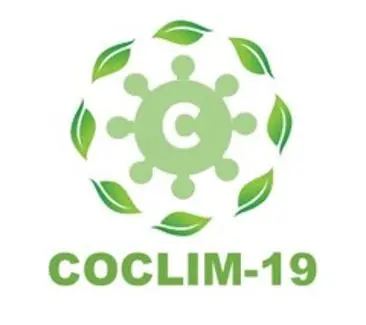COCLIM-19
COCLIM-19 (Co-benefits of green recovery packages for climate and society in response to the COVID-19 crisis) aims to understand the effect of different recovery pathways after the COVID-19 crisis on the climate, and to provide stakeholders and users with information and data on the benefits of supporting low-carbon solutions.
The COVID-19 crisis has resulted in a dramatic slowdown in the global economy leading to a short term reduction of greenhouse gas (GHG) and aerosol emissions. Large governmental recovery packages for the economy are planned or are already in action. If used to support low-carbon energy supply, these stimulus packages have the potential to meet both economic and climate goals, leading to long-lasting effects on the emission of GHG and aerosols even after recovery of the economy.
We will perform simulations with SMHI’s climate model EC-Earth3 in coordination with other modeling groups and linked to the Coupled Model Intercomparison Project Phase 6 (CMIP6) using different emission pathways reflecting alternative ways to recover from the COVID-19 crisis. We will investigate short and long term global and regional climate response signals to the different COVID-19 recovery pathways and will focus particularly on extremes over Sweden such as heat waves, Droughts and flooding. Together with stakeholders from various societal sectors, we will analyse, discuss and interpret the results from our analysis and the consequences for the environment, society, economy and health to provide a cross-sectoral synthesis of the results.

Project goals
The main aim of COCLIM-19 is to understand, describe and clarify effects on the climate of various alternative economic stimulus measures during and after the COVID-19 crisis, and to provide decision-makers and other stakeholders with that information. This includes fast effects of short term
emission reductions and long term effects of economic stimulus measures taken in near time.
More specifically we aim to:
- investigate short- and long-term global and regional climate response signals to different post-COVID-19 pathways with a focus on the effect on climate extremes over Sweden such as heat waves, droughts and flooding;
- inform and discuss with stakeholders from different societal sectors the potential effects of different recovery pathways for the various sectors and potential benefits of green stimulus recovery packages for reaching the Paris Agreement and Agenda 2030 goals;
- provide information and new data sets for upcoming impact studies and mitigation and adaptation actions across various sectors.
Stakeholder group
A Stakeholder Reference Group is part of the project. They will help us in maximizing COCLIM-19’s societal impact by making sure the analysis and
interpretation of results considers the perspective and needs of the different potential users of the project results. The SRG is composed by:
- Kevin Adams, Researcher on climate politics, climate finance and the political economy of environmental problems, former researcher at SEI, now Foreign Affairs Officer at the Office of Global Change, US Department of State;
- Joacim Rocklöv, Professor for Epidemiology & Public Health; University of Umeå
- Prof. Jan C. Semenza - Head of the Health Determinants Programme, European Centre for Disease Prevention and Control (ECDC)
- Gunhild Rosqvist, Professor of Geography, University of Stockholm
- John Hassler, Professor of Economics, Institute for International Economic Studies at Stockholm University
- Eva Lövbrand, Lector University of Linköping and Director of the Center for Climate Policy Research (CSPR)
About the project
Project partners
SMHI
Funding
COCLIM-19 is funded by FORMAS.
Timeline
COCLIM-19 will run from January 2021 to December 2021.
